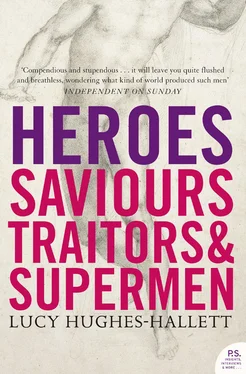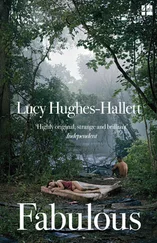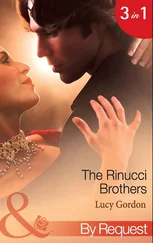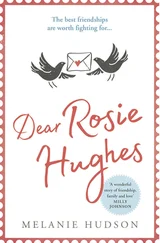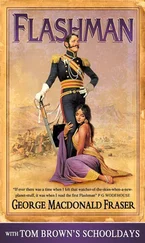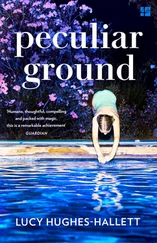1 ...6 7 8 10 11 12 ...38 When the war is over, when the fabled towers of Troy are shattered, its riches plundered and its people slaughtered or enslaved, when the Greeks at last have sailed away, Poseidon and Apollo throw down the massive rampart that protected the Greek ships. The proper sacrifices were not made before building began. The prodigious wall is an impious defacement of the landscape. The gods call upon the waters of the earth to wash it away. Rivers in flood, torrential rain, the sea’s breakers, all batter against it until there is nothing left of that desperate labour. Poseidon ‘ made all smoothalong the rip of the Hellespont/And piled the endless beaches deep in sand again’. This war, the most celebrated in human history, is to leave no trace upon the face of the earth.
‘ You’d think mehardly sane,’ says Apollo to a fellow god, ‘if I fought with you for the sake of wretched mortals./Like leaves, no sooner flourishing, full of the sun’s fire,/Feeding on earth’s gifts, then they waste away and die.’ Human affairs, viewed sub specie aeternitatis , are of gnat-like insignificance. Human aspirations are absurd, and human lifespan as short as summer’s lease.
For Homer’s heroes there is no sublime afterlife to compensate for this one’s brevity. The souls of the dead survive, but once parted from their bodies their existence is shadowy and mournful. When a warrior dies his soul goes ‘ winging downto the House of Death,/ Wailing its fate, leaving his manhood far behind,/His young and supple strength’. Physical beauty, the marvellous vigour and grace of the human body, these are life’s splendours. The pleasures of the intellect, of stratagem and story telling and debate, are prized as well, but they too are a part of corporeal life, dependent for their very existence on ear and tongue and brain. ‘ In Death’s strong house,’ says Achilles, ‘there is something left/A ghost, a phantom – true, but not real breath of life.’
Achilles and his fellows treat bodies, alive or dead, with reverence and tenderness – or with a violence that deliberately outrages the body’s acknowledged sanctity. More than half of the fighting described in the Iliad consists of battles over corpses, as a warrior’s enemies try to strip his fallen body of armour (which, poignantly, is far more durable than its wearers) while his comrades struggle to defend him from such posthumous indignity, giving their lives sometimes to save one already dead. It is the flesh that is precious: without it, the spirit is of little consequence. Funerals are awesome, long-drawn-out, and prodigally expensive. Funeral games honour the dead by celebrating the survivors’ bodily strength and swiftness and skill, insisting, even in commemoration of one who has lost it, that the breath of life is of ineffable value. And once gone it is irretrievable. Achilles refuses all Agamemnon’s proffered presents, and he would refuse them even if they were as numberless as the sand; for all the world’s wealth is worth less than his little time in the sun. ‘ A man’s life’s breathcannot come back again once it slips through a man’s clenched teeth.’
But just as the discarnate spirit is a sad and paltry thing, so the inanimate flesh is gross and open to the most squalid abuse. The dignity of embodied man is exquisitely precarious. ‘ Oh my captains,’ cries Patroclus, grieving over the beleaguered Greeks. ‘How doomed you are … to glut with your shining fat/The wild dogs of battle here in Troy.’ The Homeric warriors, who have lived for over nine years by a battlefield, the horrors of war perpetually before their eyes, are haunted by the knowledge that the strong arms, the tireless shoulders, the springy knees in which they take such pride, are also so much grease to be melted and swallowed up by the impartial earth, so many joints of meat. In one of this harsh poem’s most desolating passages King Priam foresees his own death. ‘ The dogs before my doors/Will eat me raw … The very dogs/I bred in my own halls to share my table … mad, rabid at heart they’ll lap their master’s blood.’ Death cancels all relationship, annuls all status. ‘The dogs go at the grey head and the grey beard/And mutilate the genitals.’ Even a king like Priam, his life’s breath gone, is reduced to unlovely matter, defenceless, disgusting. When Zeus sees Achilles’ immortal horses weeping for Patroclus he apologizes to them for having sent them to live with mortals, whose inevitable destiny is so pitiful, so degrading. ‘ There is nothingalive more agonized than man.’
There is one way to salvage something from the brutal fact of death. To the Homeric warriors it seemed that the fearless confrontation of violence with more violence might be a way to transform themselves from destructible things into indestructible memories. A man without courage is mere evanescent matter. ‘ You can all turnto earth and water – rot away,’ Menelaus tells the Greeks when none among them is brave enough to take up Hector’s challenge to single combat. But a man ready to go out and meet death cheats it. It is on the battlefield, as Homer tells us over and over again, ‘that men win glory’, and for the ancients the winning of glory had a precise and urgent purpose. ‘ Ah my friend,’ says Sarpedon to his comrade, ‘if you and I could escape this fray and live forever, never a trace of age, immortal,/I would never fight on the front lines again/Or command you to the field where men win fame./But now as it is, the fates of death await us/ … and not a man alive/Can flee them or escape – so in we go for the attack!/Give our enemy glory or win it for ourselves.’ Only glory could palliate the grim inexorability of death. The man who attained it distinguished himself in life from the mass of his fellows, and when he died he escaped oblivion.
Achilles’ surpassing beauty is precious not because of any erotic advantage it may give him but because, along with his strength and prowess, it renders him outstanding. His celebrity is profoundly important to him, as it would be to any of his peers. It is not frivolous vanity that makes him prize it so. A man who is praised and honoured while he is alive may be remembered even after his body is reduced to ashes and his spirit has gone down into the dark. To be forgotten is to die utterly. To Agamemnon, facing defeat as the Trojans close on the Greek ships, the most terrible aspect of the fate awaiting him and his army is that, once they have been massacred so far from home, their memory will be ‘blotted out’. The only moment in the Iliad when Achilles shows fear is when the River Xanthus comes close to overpowering him, to sweeping him away ignominiously ‘ like some boy, some pig-boy’ and threatens to bury him in slime and silt so deep that his bones will never be found, and no fine burial mound will ensure his lasting fame.
‘ Remember,’ says the mysterious wise woman Diotima to Socrates in Plato’s Symposium , ‘that the love of fame and the desire to win a glory that shall never die have the strangest effects on people. For this even more than for their children they are ready to run risks, spend their substance, endure every kind of hardship and sacrifice their lives.’ Achilles, she goes on, would surely not have given his life had he not believed that his ‘courage would live for ever in men’s memory’. Pindar, writing a generation before Plato, rejoiced that in the hero’s lifetime ‘ the voice of poetsmade known … the new excellence of Achilles’, that in his death ‘song did not abandon him’, that the Muses themselves chanted dirges around his pyre, and that the gods ordained that he, or rather his memory, should be tended and sustained by them for ever more.
St Augustine understood the ancients’ craving for fame, and what seemed to him their over-valuation of the ‘ windy praiseof men’. Looking back from the standpoint of one to whom Christ’s death had offered the hope of heaven, he wrote forgivingly of the folly with which they tried to extend and to give significance to their pathetically finite lives. ‘Since there was no eternal life for them what else were they to love apart from glory, whereby they chose to find even after death a sort of life on the lips of those who sang their praise?’
Читать дальше
